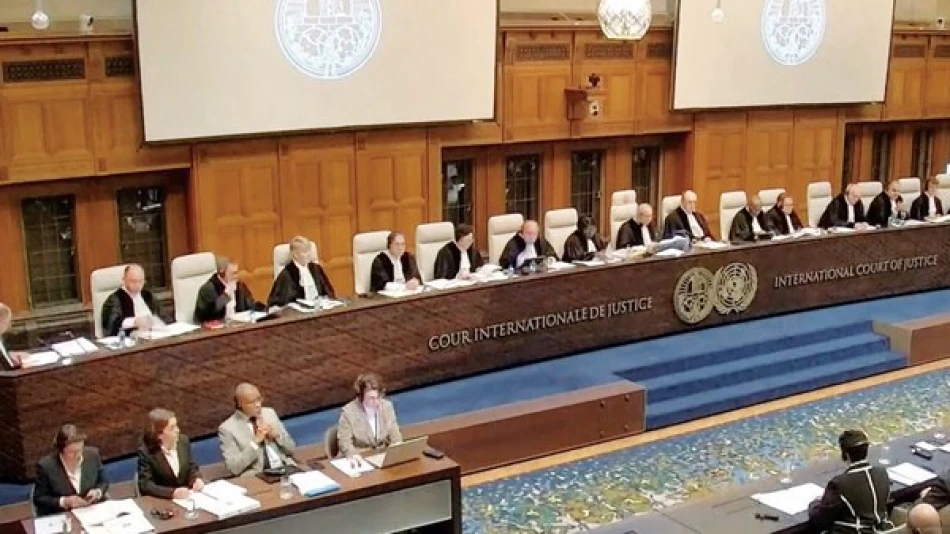
UAE Reiterates Unwavering Support for International Court of Justice Efforts
The UAE has reaffirmed its strong support for the International Court of Justice, emphasizing the court's growing importance in settling global disputes peacefully. Speaking before the UN General Assembly, the Emirates welcomed recent court decisions and stressed that responsible use of the court's jurisdiction is essential to maintain its effectiveness as the UN's primary judicial body.
Sheikh Mohammed bin Khalifa Al Nahyan delivered the UAE's statement on the ICJ's annual report, highlighting how the court's increased activity in both contentious cases and advisory opinions reflects growing international confidence in its capabilities. But he also warned that countries need to be responsible when bringing cases to avoid clogging the system with frivolous lawsuits.
The UAE specifically welcomed the court's decision to dismiss and remove from its docket a case filed against the Emirates earlier this year, citing lack of legal basis. This outcome reinforces the UAE's position that the court should focus on cases with serious legal foundations rather than politically motivated disputes.
On climate change, the UAE noted that the court's recent advisory opinion on state obligations regarding climate action will help guide countries in their efforts to combat what it called "an unprecedented existential threat to humanity." This opinion comes as nations worldwide grapple with implementing more aggressive climate policies while balancing economic concerns.
The statement also addressed the court's advisory opinion on Israeli obligations in occupied Palestinian territories. The UAE emphasized that this ruling clarifies Israel's legal duties as an occupying power, including facilitating UN relief operations and allowing international aid organizations and third-party states like the UAE to provide assistance to Palestinians in Gaza.
For international relations, this positioning matters because it shows how middle powers like the UAE are using international legal frameworks to advance their foreign policy goals. The Emirates has been actively involved in Gaza aid efforts, and the court's opinion provides legal backing for continued humanitarian operations despite ongoing conflict.
The UAE's emphasis on consistent application of international law reflects broader concerns about selective enforcement in global affairs. The statement stressed that rule of law becomes especially important when the international system faces "deep disparities in power balances, influence, and opportunities."
The Emirates concluded by reinforcing that respect for the UN Charter's principles - including sovereign equality, territorial integrity, and prohibition of force - remains essential for maintaining international peace and security. This approach aligns with the UAE's broader strategy of positioning itself as a responsible international actor committed to multilateral institutions.
Most Viewed News

 Layla Al Mansoori
Layla Al Mansoori






